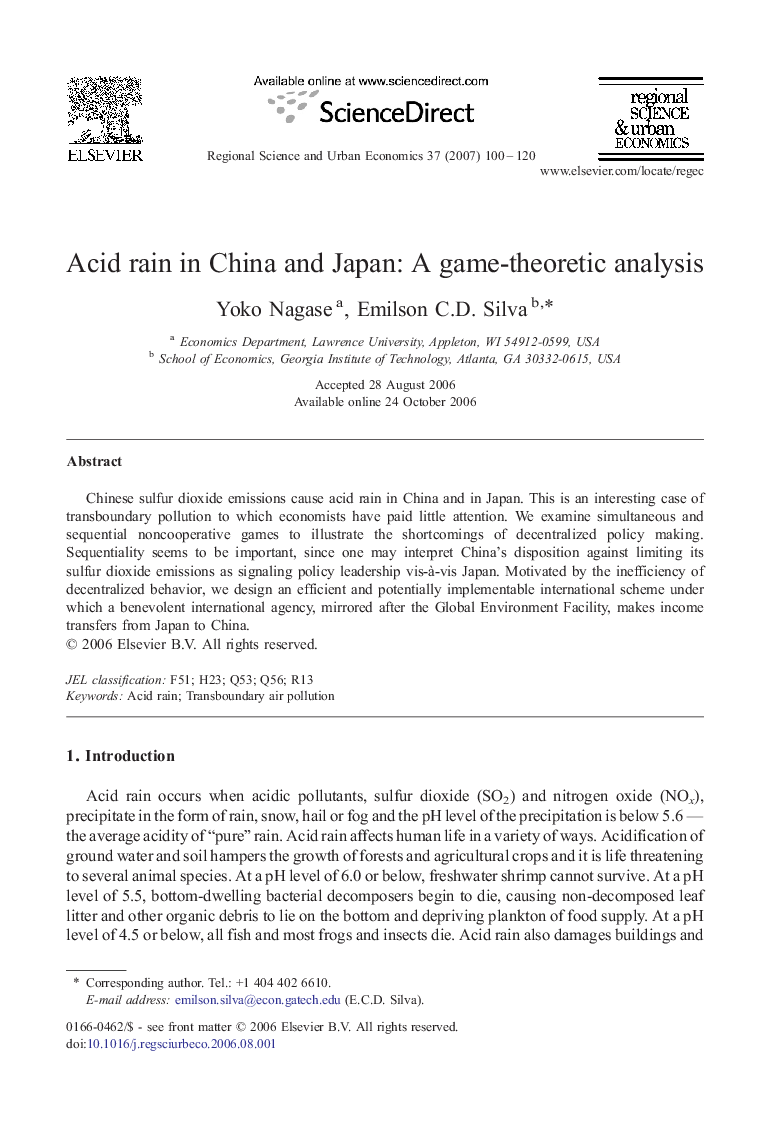| Article ID | Journal | Published Year | Pages | File Type |
|---|---|---|---|---|
| 983954 | Regional Science and Urban Economics | 2007 | 21 Pages |
Abstract
Chinese sulfur dioxide emissions cause acid rain in China and in Japan. This is an interesting case of transboundary pollution to which economists have paid little attention. We examine simultaneous and sequential noncooperative games to illustrate the shortcomings of decentralized policy making. Sequentiality seems to be important, since one may interpret China's disposition against limiting its sulfur dioxide emissions as signaling policy leadership vis-à-vis Japan. Motivated by the inefficiency of decentralized behavior, we design an efficient and potentially implementable international scheme under which a benevolent international agency, mirrored after the Global Environment Facility, makes income transfers from Japan to China.
Related Topics
Social Sciences and Humanities
Economics, Econometrics and Finance
Economics and Econometrics
Authors
Yoko Nagase, Emilson C.D. Silva,
